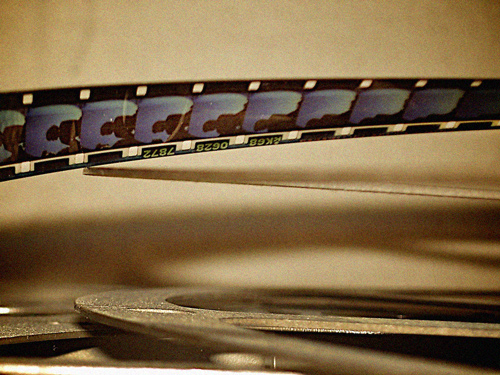Is writing a waste of time?
http://www.flickr.com/photos/vinni/4048982287/
This is a thought I’ve encountered whilst working through my first year of Professional Communication studies. Jay Bolton understands my concern, and through his reading for this week I now more fully appreciate writing as a craft on its own.
Bolton explains that writing is a technology that is not as obviously productive at first as farming or carpentry, yet as time passes we can see that writing is the great preserver of culture, history, and other technologies. Indeed, writing is just as much a craft as other trades are, it is just using a completely different skill set.
Bolton continues by noting an important difference between writing and other crafts such as construction or architecture. In most fields, craftsmen can put down their tools and head home after their work is done. However for writers, detaching themselves from their work is not so easy. For some reason, writing seems to constantly play around in your mental thoughts. You might turn off your computer and finish writing that essay, but then throughout the day it’s like you are still writing in your head.
“Walter Ong and Jacques Derrida have insisted that writing exercises this constant influence upon our mental life.” Bolton reading
It is for this reason that I don’t think I could ever be a journalist. I don’t think I would be able to switch off from ‘work mode’ because I would forever be thinking about, and listening out for potential new stories. Obviously some people would thrive on it, but I’m feeling exhausted just thinking about it!
I feel that one reason why blogging has grown so popular recently may be because it is a great way of getting thoughts down on paper as soon as you think of it. You don’t have to work to a deadline like journalism. Instead, when bloggers get an idea, they can simply go straight to their computer and write it down.
Also, people often feel more comfortable sharing their private lives on a blog than through face to face means. Janet Murray shares about this in the Landow reading:
“Some people put things on their home page . . . that they have not told their closest friends. The enchantment of the computer creates for us a public space that also feels very private and intimate.”
George Landow goes on to describe how bloggers can use hypertext to then link individual blog posts to each other. By doing this, the writers are…
“allowing readers to put events in context and get the whole story without the diarist to have to explain again.”
And then also through hypertext, the blog reader becomes a more active reader, one that can add text or link to another site at any time. They are empowered to become a creative, more interactive reader.
Thanks for reading. You should check out Esther’s informative post about navigating hypertext.







![204/365: *Wink* [Blue]](https://live.staticflickr.com/3559/3794019126_561f20f091.jpg)


